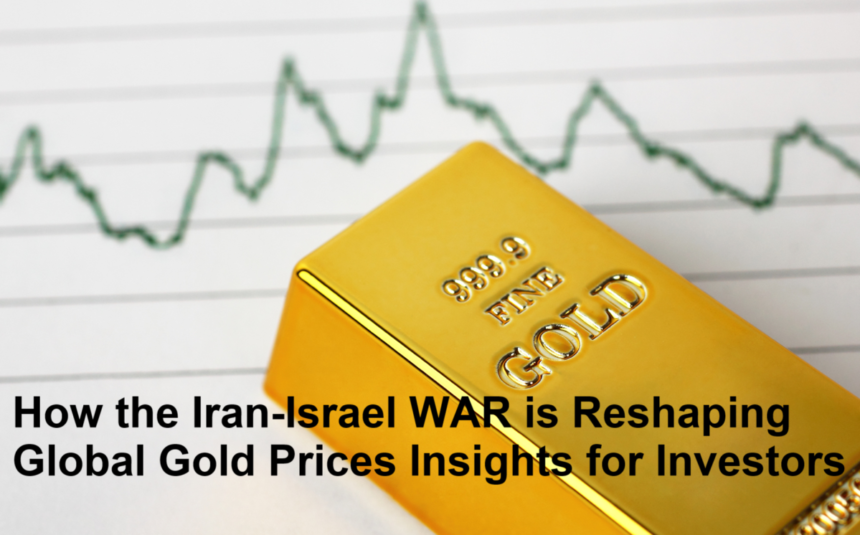The escalating conflict between Iran and Israel has sent shockwaves throughout global financial markets, with gold prices prominently impacted by the ongoing geopolitical turmoil. As tensions in the Middle East intensify, gold has once again emerged as the favored safe-haven asset for investors seeking security amid uncertainty. This article delves into how the Iran-Israel war is influencing the price of gold, the economic repercussions of these changes, and key considerations for investors navigating this volatile landscape.
Background: Geopolitical Tensions and Market Sensitivity
The history of conflict between Iran and Israel has long been a source of instability in the Middle East. Recent escalations—characterized by military strikes, diplomatic stand-offs, and regional alliances shifting—have heightened fears of broader conflagration. Given the Middle East’s strategic importance to global energy supplies and financial markets, such events often prompt investors to reassess risk. Gold, traditionally viewed as a stable asset during periods of geopolitical unrest, becomes a natural refuge, leading to surges in demand and price.
Why Gold Prices React to War and Uncertainty
Gold is valued for its ability to preserve wealth, especially when traditional markets like stocks and bonds experience volatility. In times of war and political uncertainty, investors shy away from riskier assets and flock towards gold, which does not rely on any country’s economic policies or creditworthiness. The Iran-Israel war heightens concerns about supply disruptions, inflation, and economic slowdowns, all of which increase gold’s appeal as a protective asset. Consequently, gold prices tend to climb as buyers seek to hedge against potential financial turmoil.
Recent Trends in Gold Pricing Amid the Conflict
Following the recent surge in hostilities, global gold markets have reflected this unease. Analysis of price trends shows that every military escalation or feared escalation triggers noticeable spikes in gold buying activity. Investors respond swiftly to news, pushing prices upward on international exchanges. Additionally, movements in the U.S. dollar, often inversely related to gold prices, have been affected by shifts in investor sentiment linked to the conflict, further influencing gold’s market trajectory.
Economic Implications of Rising Gold Prices
The price fluctuations caused by the Iran-Israel conflict extend beyond the precious metals market. Rising gold prices may signal heightened concerns about inflation and economic uncertainty among investors globally. Central banks, hedge funds, and financial institutions often adjust their reserves to mitigate risk during such periods, amplifying the impact on gold demand. For ordinary investors, the increased cost of gold can affect portfolio decisions and asset diversification strategies, emphasizing the importance of understanding geopolitical risk factors.
Investment Strategies During the Iran-Israel Conflict
Investors should approach this period with a balanced strategy. While gold offers protection during geopolitical crises, it can be subject to corrections and should not form the entirety of an investment portfolio. Maintaining a diversified mix of assets that includes stocks, bonds, commodities, and cash alongside gold is prudent. Staying informed about developments in the Iran-Israel conflict and monitoring economic indicators will allow investors to adjust their exposure dynamically to safeguard against risk and seize potential opportunities.
Outlook: Monitoring Ongoing Conflict and Gold Market Volatility
As the Iran-Israel war continues to develop, the gold market remains highly sensitive to new information on military engagement, diplomatic efforts, and regional stability. Price volatility is expected to persist as the geopolitical landscape evolves. Investors and market watchers are advised to keep abreast of news reporting, economic data releases, and central bank communications to anticipate market movements and safeguard investments effectively.
Conclusion
The Iran-Israel war is a stark reminder of how geopolitical conflicts can significantly affect commodity markets, especially gold. As investors seek to navigate these uncertain times, understanding the relationship between geopolitical risk and gold pricing becomes essential. Gold’s role as a safe-haven asset during conflict underscores its importance in diversified investment portfolios, allowing both individual and institutional investors to protect wealth amid global instability












